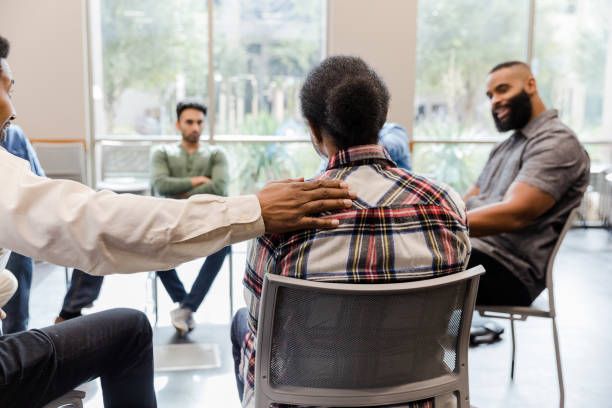Rehabilitation is the process of restoring or improving the physical, mental, or social functioning of a person who has been affected by an injury, illness, disability, or addiction. Rehabilitation can help people recover from their conditions, regain their abilities, and enhance their quality of life. Rehabilitation can also prevent or reduce the risk of complications, secondary impairments, or chronic diseases. Rehabilitation is an important and impactful field that can benefit individuals, families, communities, and societies in many ways.
In this blog, we will discuss the meaning and definitions, history and evolution, nature and features, scope and benefits, and importance of rehabilitation and rehabilitation science.
Meaning and Definitions
Rehabilitation is a broad term that can have different meanings and definitions, depending on the context, perspective, and purpose. According to the World Health Organization (WHO), rehabilitation is “a set of measures that assist individuals who experience, or are likely to experience, disability to achieve and maintain optimal functioning in interaction with their environments”.
Rehabilitation science is the scientific study of rehabilitation, which includes the development, evaluation, and application of theories, methods, interventions, and technologies that can improve the rehabilitation outcomes and processes.
History and Evolution
Rehabilitation has a long and rich history that can be traced back to ancient times, when various civilizations, such as Egypt, Greece, Rome, China, and India, used various methods and techniques, such as massage, exercise, hydrotherapy, acupuncture, and herbal medicine, to treat and heal various conditions and injuries.
Rehabilitation also evolved with the development of various fields and professions, such as medicine, surgery, orthopaedics, neurology, psychiatry, physiotherapy, occupational therapy, speech therapy & psychology.
Rehabilitation gained more prominence and recognition in the 20th century, especially after the two world wars, which resulted in a large number of casualties, injuries, and disabilities among the soldiers and civilians. Rehabilitation became a vital and integral part of the health care system, as it helped the war victims to recover from their wounds, restore their functions, and reintegrate into the society.
Rehabilitation continues to grow and evolve in the 21st century, as it responds to the changing trends and demands of the global and local contexts, such as the increasing prevalence and burden of disability, the ageing population, the urbanization and migration, the environmental and social determinants of health, the human rights and social justice, the technological and digital advancements, and the evidence-based and person-centred approaches.
Nature and Features
Rehabilitation is a complex and dynamic field that has various nature and features, such as: Rehabilitation is a process, not a product. Rehabilitation involves a series of actions and interactions that are planned, implemented, monitored, and evaluated, according to the needs, goals, and preferences of the person and the context. Rehabilitation is a holistic, not a reductionist approach. Rehabilitation considers the person as a whole, not as a sum of parts. Rehabilitation addresses the physical, mental, and social aspects of the person, not just the disease or impairment.
Rehabilitation is a collaborative, not a hierarchical or isolated activity. Rehabilitation involves the participation and contribution of various stakeholders, such as the person, the family, the rehabilitation team, the health care system, the community, and the society.
Scope of Rehabilitation Science in India
Rehabilitation science has a wide and diverse scope in India, as it can cater to the needs and demands of various populations and situations, such as:
- People with disabilities: There is a huge need and demand for rehabilitation services and professionals, who can help people with disabilities to achieve and maintain optimal functioning and well-being, and to enjoy their rights and opportunities in the society.
- People with chronic diseases: Chronic diseases can have a significant impact on the physical, mental, and social functioning and well-being of the people, and can also impose a huge burden on the health care system and the economy. Therefore, there is a great need and demand for rehabilitation services and professionals, who can help people with chronic diseases to manage their conditions, prevent or reduce complications, and improve their quality of life and productivity.
- People with special needs: There are various groups of people who may have special needs or challenges, due to various reasons, such as age, gender, caste, religion, ethnicity, language, culture, or socio-economic status. Therefore, there is a vital need and demand for rehabilitation services and professionals, who can help people with special needs to overcome their barriers and difficulties, and to access and utilize their resources and entitlements in the society.
Benefits of Studying Rehabilitation Science
There are various benefits of rehabilitation, such as:
- Acquiring knowledge and skills: Studying rehabilitation science can help you acquire knowledge and skills in various aspects of rehabilitation, such as its history, theories, methods, interventions, and technologies.
- Pursuing career opportunities: Studying rehabilitation science can help you pursue various career opportunities in rehabilitation and related fields. You can work as a rehabilitation professional, such as a rehabilitation doctor, nurse, physiotherapist, occupational therapist and more.
Importance of Rehabilitation Programs
Rehabilitation is an important and impactful field, as it can benefit individuals, families, communities, and societies in many ways, such as:
Improving health and well-being: Rehabilitation can help improve the health and well-being of people who need rehabilitation, by addressing their physical, mental, and social needs and challenges.
Reducing burden and cost: Rehabilitation can help reduce the burden and cost of disability and chronic diseases, by preventing or reducing the need for hospitalization, medication, surgery, or institutionalization.
Promoting human rights and social justice: Rehabilitation can help promote the human rights and social justice of people with disabilities, by ensuring their equal access and participation in all aspects of life, such as health, education, employment, sports, culture, and development.
Conclusion
Rehabilitation is a process of helping people who need rehabilitation to improve their functioning and well-being, and to participate fully in the society. Rehabilitation is a multidisciplinary field that involves various professionals, services, and settings, such as rehabilitation psychology, which studies the psychological aspects of rehabilitation.
Rehabilitation is a holistic, collaborative, goal-oriented, and person-centred approach that respects the dignity and diversity of the people who need rehabilitation. Rehabilitation is a rewarding and satisfying field that has a lot of benefits and impacts for yourself and others, such as the benefits of rehabilitation for juveniles, who can overcome their delinquent behaviour and reintegrate into the society, or the benefits of rehabilitation services, which can provide quality and accessible care and support to the people who need rehabilitation.
If you are interested in rehabilitation, you should consider studying rehabilitation science, which is the scientific study of rehabilitation. Studying rehabilitation science can help you acquire knowledge and skills, pursue career opportunities, and make a positive impact in rehabilitation and related fields.




